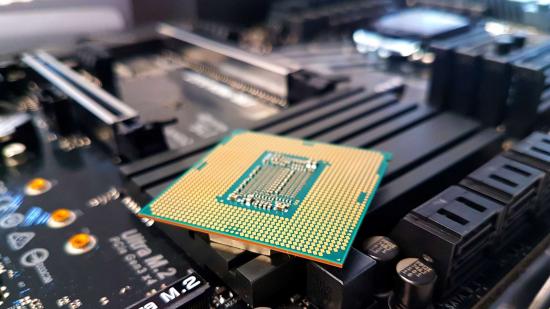Intel’s 11th generation Rocket Lake processors might be less than two months old, but we’re already looking forward to its Alder Lake lineup expected later this year, bringing DDR5 support and ARM-like big.LITTLE architecture to gaming PCs for the first time. Now, with Igor’s Lab getting its hands on the specs sheet for an engineering sample, we might have an idea of what to expect from the 12th generation CPUs.
Dubbed an ‘Intel Core-1800’, the chip starts with a low base clock speed of 1.8GHz along with a boosted clock speed of up to 4.6GHz, although it’ll only hit these speeds on two of its 16 cores. Those consist of eight high-performance Golden Cove cores and eight high-efficiency Gracemont Atom cores, denoting the CPU’s big.LITTLE design.
Intel’s 12th gen chips are the first gaming PC processors built around this design, and if the performance of Apple’s big.LITTLE-based silicon is anything to go by, they could pack an impressive punch. Power consumption for the chip is rated at 125W, although this rises to a higher 228W when the processor boosts to turbo frequencies (PL2).
If this engineering sample is representative of a future i9 processor, it would indicate Intel has improved efficiency over the i9 11900K’s PL2 rating of 250W. This could mean that Alder Lake has serious overclocking potential, if Rocket Lake wasn’t already impressive.
Igor’s Lab also corroborates earlier suspicions that LGA 1700 Alder Lake motherboards will be available in both DDR4 and DDR5 formats, so don’t chuck away the current best gaming RAM just yet. There should also be support for PCIe 5.0, letting you take full advantage of the future best SSD for gaming. If we don’t see support with AMD’s Zen 3+, it might be another year until we see the red team welcome the fifth generation of RAM and PCIe interfaces to Ryzen CPUs.
